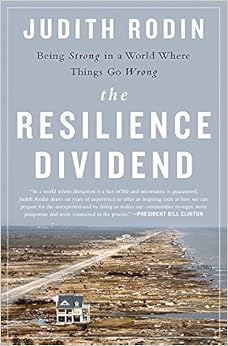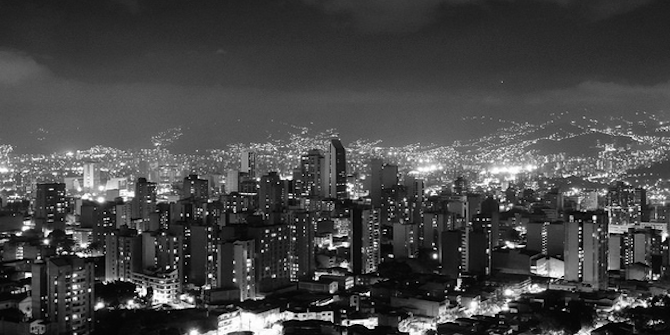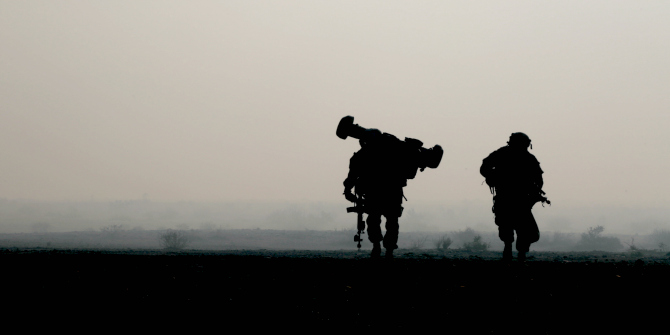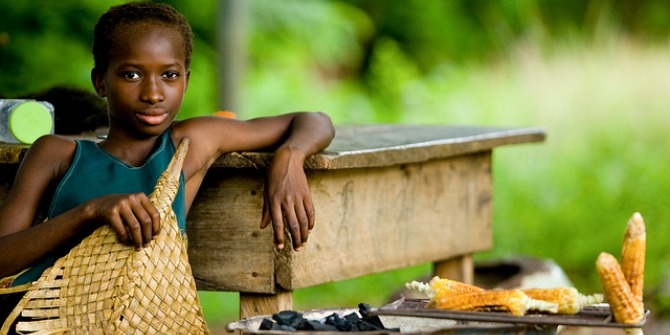In this book, Judith Rodin shows how people, organizations, businesses, communities, and cities have developed resilience in the face of otherwise catastrophic challenges. Debika Ray thinks, if taken as an inspirational manual for policy makers, it is a readable and timely book.
 The Resilience Dividend: Being Strong in a World Where Things Go Wrong. Judith Rodin. Public Affairs/Perseus. November 2014.
The Resilience Dividend: Being Strong in a World Where Things Go Wrong. Judith Rodin. Public Affairs/Perseus. November 2014.
In The Resilience Dividend, Judith Rodin draws on examples of crises from around the world in an effort to demonstrate the importance of resilience — “humanity’s ability to bounce back” — in a context of increasing and continual social, economic, political, natural and technological upheaval.
President of the Rockefeller Foundation, Rodin has borrowed a term that has been, for some years, fashionable in the field of psychology — her specialist subject — and applied it to a range of urban, municipal and corporate contexts. Since 2012, when New York was ravaged by Superstorm Sandy — the moment Rodin says she realised the importance of being prepared for large-scale shocks — the foundation has made the concept central to its work, establishing the 100 Resilient Cities initiative, which aims to fund 100 cities around the world to become better equipped for the challenges of the 21st century.
It is, therefore, no surprise that Rodin’s book reads much like a manifesto for the Rockefeller Foundation’s aims. Using positive and negative examples, she aims to show how entities – be they individuals, communities, organisations or natural systems – can prepare for disruption, recover from shocks and learn from disruptive experiences. An entity that has built up resilience, she says, is one that is better able to prevent the shocks it can predict and respond to those it cannot.
These disruptions could be cyber-attacks, new diseases, economic failure or natural disasters. In particularly, says Rodin, we are increasingly vulnerable to the effects of urbanisation, globalisation and climate change — three phenomena which create challenges of their own and exacerbate one another. A weather disturbance, for example, may create infrastructural damage in an area, which could lead to a public health crisis and, in turn, civil unrest and financial instability. Our response to these circumstances, she argues, must be to build “structural, social and natural” resilience: “hard” solutions such as technologies, systems, data and products, and “soft” ones such as better governance, leadership, communication and social cohesion. In Rodin’s reading, systems become resilient by becoming more ““aware, adaptive, diverse, integrated and self-regulating”.

To demonstrate how this can be done, Rodin uses examples that range from the Anders Breivik shootings to the Japanese earthquake to Coca Cola’s efforts to maintain its water supply. She relates how the Colombian city of Medellin — notorious for drugs cartels and violence in the 1990s — has reinvented itself as a growing economy and thriving tourist destination through efforts by public, private and civil society entities to increase mobility around the city, for example by installing escalators to make the centre of the city more accessible from its peripheries. Medellin is now part of the 100 Resilience Cities initiative. She also examines the resilience of the Vietnamese community in New Orleans, which she says escaped the worst effects of Hurricane Katrina by falling back on support from family and friends.
Each chapter runs through a different phase in building resilience. She uses the Boston Marathon bombing to illustrate the three stages of resilience: readiness, responsiveness and revitalisation. She explains that human vulnerability – lack of awareness, inability to manage response, integrate ideas and adapt after an event – is what makes a crisis a disaster. She prescribes dividing an entity’s vulnerabilities into “known unknowns and “unknown unknowns”, then strengthening existing systems so they can be scaled up when necessary, such as the ability to disseminate vaccines when there is a flu outbreak, and preparing for disasters before they occur, such as by reinforcing houses in case of an earthquake.
Couched in the language of management and business, Rodin’s book is ambitious in its scope. She draws on a huge range of examples and pulls them together to form a engaging narrative. But the vast ground she attempts to cover reveals the term “resilience” to be problematic. Can these solutions to these examples, each with their unique and complex set of socio-political circumstances, really be summarised by this one term? Rodin touches on all manner of modern disruption, from migration to the rising sea levels — and often does this in unsatisfyingly general terms, making sweeping statements such as “we know that fractured communities are vulnerable ones” and merely scratching the surface of commonly understood phenomena such as climate change. In doing so, she neglects to provide a critical, political analysis of how these phenomena are created and exacerbated.
She identifies crises and solutions as procedural glitches with technical solutions. But there is a huge difference in terms of causation and long-term implications between the disruption caused by a technical, institutional or organisational failure, an environmental disaster, and political protest. Civil unrest, for example, can be a vital part of the democratic process, while financial crises are symptomatic of wider policy failings. It is hard to see how these can be grouped together in a meaningful way without ignoring wider structure within which they occur, or be simply managed away through better feedback loops and cost-benefit analyses. Rodin barely mentions the global forces that have shaped our modern condition, such as the unequal distribution of power and resources, and shifting economic policy trends. Any examination of human survival on this scale is incomplete without such considerations.
Rodin makes a robust case for the importance of social cohesion, but does not discuss the political implications of the “big society” ideology. She advocates expanding the reach of financial services to farmers in the developing world, but does not sufficiently assess the potential consequences of exposing small-scale agriculture to the instability of financial markets. Nor does she critically examine such phenomena as microfinance and the green revolution. She includes Dow Chemicals as an example of a “community builder”, but does not mention its association with a catastrophic gas leak in India in 1984.
Rodin’s book should perhaps be seen as an inspirational manual for policy makers — a collection of stories about managing crises and disruption, rather than a critical analysis of these events and responses to them. If taken in that spirit, it is readable and timely.
This review originally appeared at the LSE Review of Books.
Please read our comments policy before commenting.
Note: This article gives the views of the authors, and not the position of USApp– American Politics and Policy, nor of the London School of Economics.
Shortened URL for this post: http://bit.ly/1D6UEJx
——————————————–
Debika Ray
Debika Ray is a journalist and editor, and has written articles on subjects including environmental politics, water shortage, education, copyright law, urbanisation, architecture, housing and globalisation. You can find her work here: debikaray.com






